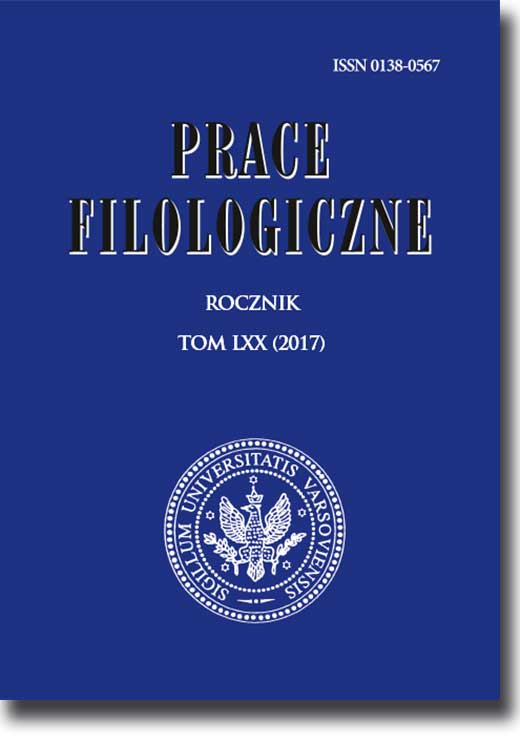Konteksty uwydatniające konflikty woli a walencja czasownika {chcieć}
Conflicts of Will and the Valency of the Verb {chcieć} (‘to want’)
Author(s): Izabela Duraj-NowosielskaSubject(s): Theoretical Linguistics, Applied Linguistics
Published by: Wydział Polonistyki Uniwersytetu Warszawskiego
Keywords: agentivity; intentionality; semantics; predicate-argument structure; volitionality
Summary/Abstract: In the article I discuss the problem of the complements of the verb {chcieć} 'to want'. I propose to add one more complement to its predicate argument structure, namely the "aspectual" argument {X chce p ze względu na q} 'X wants p for [the sake of] q', where the scope of the {"for}-argument" can vary between certain concrete, "tangible" aspects of p (like in "feel-like" willing) on the one hand and complex, elaborated reasons on the other. The advantages of such an approach are as follows: a) no semantic obstacles in treating the verb chcieć as the semantic centre of the whole class of volitional predicates; b) semantically coherent account of sentences stating that somebody wants (to do) something and at the same time he does not want it (→ X wants p for [the sake of] q, and X does not want p for [the sake of] r); c) coherent account of sentences saying that somebody is doing something (intentionally), although he does not want to do it; d) application in contradiction tests checking the presence of a volitional component in predicates; e) reference to the interpretation of other predicates such as {lubić} 'to like' or {dobry} 'good' / {zły} 'bad'.
Journal: Prace Filologiczne
- Issue Year: 2017
- Issue No: 70
- Page Range: 171-192
- Page Count: 22
- Language: Polish

